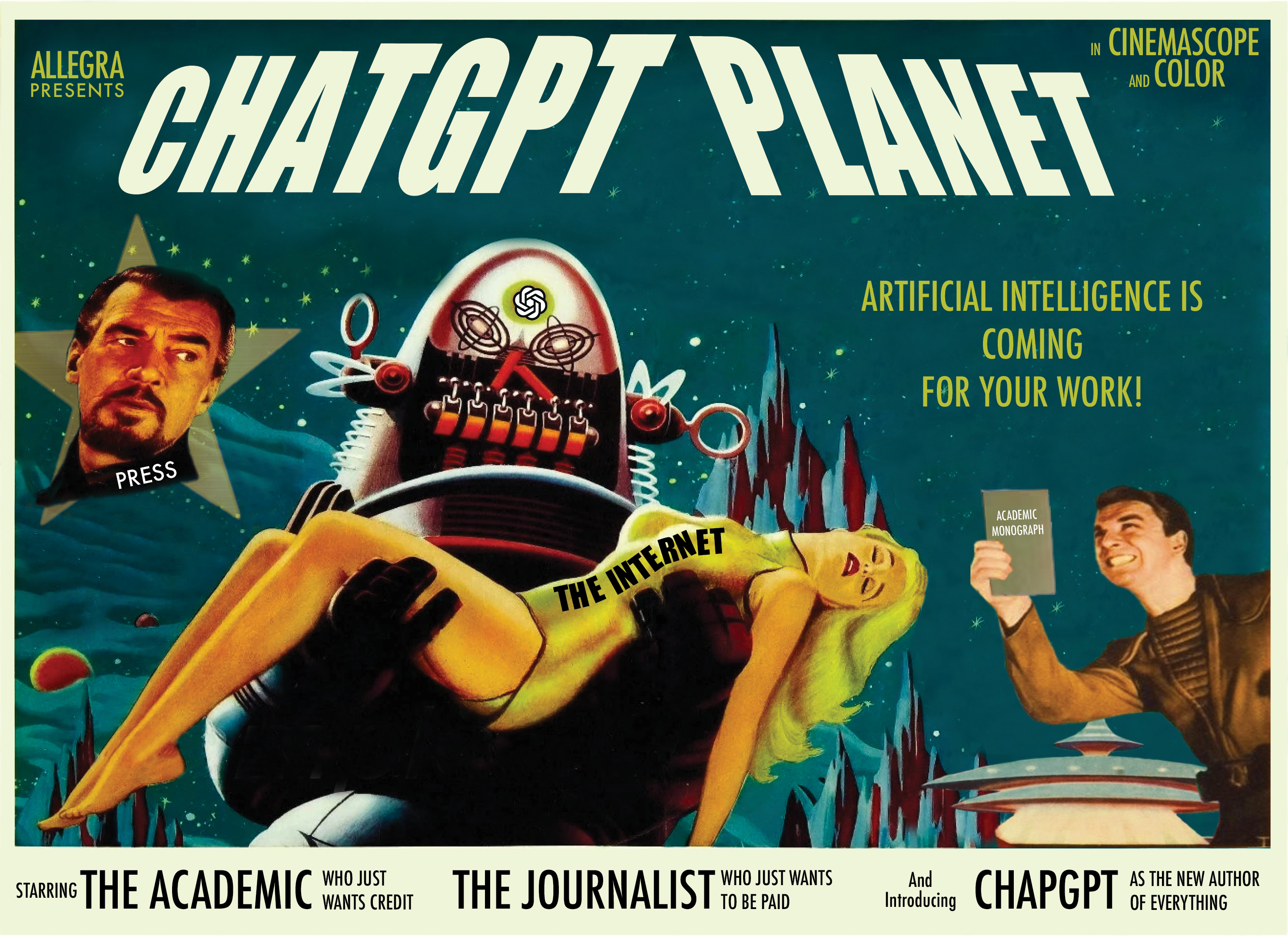When I was 18 I went to study economics. But I didn’t last long, mainly because I didn’t find what we were doing there important. It was somewhat interesting, but too much like a joke I once heard about statistics: they are like bikinis, you get the overall idea, but can’t see the essentials.
Benjamin Kunkel’s review of the influential Capital in the Twenty-First Century by Thomas Piketty provides an explanation of my dissatisfaction with the discipline that has always eluded me:
“The story of modern economic thought can after all be told as the shift from political economy – a space with open borders onto what are today anthropology, sociology, history and political science – to the discipline now [simplified and] simply called economics.”
I had applied for a degree in Economic Policies because I was interested in political economy. As Kunkel rightly observes, economies cannot be explained exclusively in economic terms, and the discrete charm of Piketty’s book lies within the rehabilitation of an out of favour school of thought: that of the political economy.
In the 1870s, a revolution took place with Jevons’ theory of marginal utility, and political economy merged into what is now known as economics – the simplified scientificised discipline, better delimited from a methodological point of view than its older relative, but much, much narrower.
There is no better explanation for Jevon’s marginality than the oft-used example of diamonds: they are more expensive than water because the anticipated satisfaction for a unit of diamonds is bigger than that attached to a unit of water. It is this added value, with every (marginal) unit consumed, this satisfaction foretold, that establishes the price of a good.
If only the marginal revolution were what it seemed – talking about the marginalised – I would have probably been profoundly touched and stayed within the economics closet, as deep down inside I have always supported the underdog.
Marginalists did dominate economics departments until recently, with their “childish passion for maths”, as Piketty endearingly calls it, an easy way of obtaining scientific appearances without having to answer the more intricate/complex questions of the world.
But it was these profound concerns that I sought to understand more about; and throughout the first two years of studying economics I was living with a daily frustration that nobody was training me adequately to manage them.
So I ran away, as far and as fast as I could; I took the first ticket out in the shape of an exchange scholarship to a “Southern”, “exotic” country, hoping that the school of life would help more than the school of economics. I followed the curriculum of the exchange, while my eyes were wide open to my own cultural presence.
Then it just happened, as always in my life so far, I met some inspiring architects/urbanists who were working with anthropologists.
I had heard vaguely of anthropology from a family friend when I was about thirteen. She had gone back to university and took, among other things, a cultural anthropology course, which she described to me as the most interesting thing she had ever studied. Her final paper was based on observations of the revolving door at the entrance of the university building hosting her class. I can’t quite remember what I made of it at the time, but something clicked, it all sounded so… right. So when I heard that my new urbanist/anthropologist friends were working together on a development site in a remote village, I did everything I could to join them.
It was an epiphany. I had discovered the key to finally understanding the world.

But anthropology was. It opened up a whole new world for me.
I still think anthropology should be a compulsory subject in secondary school and its all too brief appearance on the A-level curriculum should be extended. And this is not because of the shy hype it got with Yong Kim, an anthropologist, becoming the President of the World Bank, or Ashraf Ghani, another anthropologist, becoming the President of Afghanistan. It is because, at least when you first encounter this discipline, it has the incredible power of opening your mind, your world.
Anthropology kept throwing at me nuanced views alongside my diverse academic affiliations, which took me West and then back East and farther East again.
But fifteen years after my first fieldwork, that initial infinite horizon has become so narrow that I find myself cornered. The language we use is so tight that I do not believe in anthropology any more, neither as a destination, nor as the absolute salvation, the way and the truth and the life.
So why did my mind-opening experience of anthropology end?
Partly because of the way academia has evolved under neoliberal pressure, a subject of much wailing and gnashing of teeth in academic press and blogs (my colleague David Berliner‘s post is the best recent example I can think of).
Are we really so completely powerless in the face of neoliberalism? I hope not. That would contradict the ever-repeated (neoliberal, after all) point by anthropologists that no one is entirely powerless and everyone has some amount of agency.
Also, it would be quite arduous for anthropology to become, regardless of the pressure, some marginal theory based on mathematical models, even though it is exceptionally interested in the marginal.
But the perverted ways of quantifying work that have invaded the cloisters of our great centres of knowledge under the all-encompassing culture of accountability are only about Jevon’s marginality. Numbers of published papers, numbers of other people quoting the respective papers in other papers, numbers, numbers, numbers, of keywords and shiny words and sexy words –all serve to justify “added value” of research.
To some extent things have always been like this; the academic world has had to fold itself in the intricate textiles of the various fashions which dress the social needs of the moment – the acute problems of contemporary real realities; and it is these that eventually decide who gets the lion’s share of funding.
Nevertheless, over the last three decades excessive quantification of thought has brought such repetitive results. It is frustrating to see how ideas are recycled from one conference to the next, from one publication to the next – the natural result of authors confronted with obligations to produce X papers per year.
But how many times a year can one be innovative, original or radical? Frankly, how many times is someone innovative, original, and radical over the course of a career? The sad fact is that originality, innovation or radicalism are not really the ends of the academic game, despite much posturing to the contrary. Conformity is the most assured route to academic survival, not originality, a fact that neoliberal quantification is only intensifying. The rapid publication rates ensure mediocrity. And this applies to any academic discipline, not just anthropology.
But my supreme sadness is that, in the quest for survival, the giga-literature we enslave ourselves to produce and read condemns us to produce neurotically niched research, violently unimportant. The initial mind-opening potential of anthropology has closed in on me like the horizon disappearing to a single point.
Has neoliberalism forced anthropology to over-specialise and cleave too closely to the demands of its funding sources? Or, did the anthropologists themselves narrow their spheres of inquiry, and with it their sense of wonder? Probably both. James G. Carrier sums up this conundrum:
Together, these changes have left anthropologists with no critical perspective on the world, just as the ascendance of neoclassical economics left economists with no such critical perspective.

I am no longer excited. Exhausted of forever running marathons of literature generated bulimically for the production of excellence. Almost always doing something else than what has to be done, which is answering those intricate questions about the world. No longer doing economics but academonomics: ordered work which imposes a systematic distortion of meaning, value and final purpose.
But I’m still looking for that satisfaction foretold. Or the next inspiring architect.








I hear you.. I can also almost see you, in these words. It is a very moving essay. I feel the same way, intensely frustrated with both the overspecialization of our discipline and the lack of coherent goals. I worked in applied anthropology during the 1980’s – at a green revolution institute, located at a field state in West Africa. I soon began to feel very uneasy. I wrote a paper about this many years afterward, to put it all into perspective. Here is what I wrote: “Gradually, a staggering realization burst upon me: the entire collection of scientists I was working with viewed all the indigenous sub-sistence economies within the semi-arid tropics as unsatisfactory and in need of ‘improvement’. This was not so much to improve the diets and overall ability of these farmers to adapt successfully to their environments, as it was so that they could generate numbers to bring up the GDP of the nation state in which they found themselves. These kinds of subsistence economies did not ‘grow’ very much in the sense of increasing out- puts to the larger market economy … and for most economists and policy makers directing ‘development’ efforts, this kind of growth was the prime measure used to evaluate the health of an economy.
What this meant to me, as an anthropologist, was that many of the cultures we have studied were not, generally, admired for being self-sufficient. Rather, they were deplored for being poor, having ‘low life expectancy’, being illiterate, practicing ani- mist beliefs, polygamy, female circumcision, or in- fanticide. I suppose there were even a few sincere people who worried about them because they stand no chance of contributing to our understanding of astrophysics.
Worse than all the soft causes which draw nega- tive attention on the world stage, however, is the terrible indictment of them within the world of economic development: they were not efficient at producing commodities for world markets. Nor were they rapidly becoming driven by any desire for western consumer goods and even agricultural innovations. In one village, there were people who recalled the first time they had ever seen a donkey cart, and the first bicycles and radios owned in the village were still perceived as a recent event. The acquisition of sim- ple ploughs was very recent indeed, to the point that I found many of these still sitting unused some five years after they had arrived….
…..As I learned more, I became convinced that the Green Revolution may have begun as a sincere ef- fort to improve food supplies, but it had also become a tool of globalization, and of commercial interests. Ultimately, these appeared to be aiming at complete control over food production, on this planet, through creating a world-wide dependence on fertilizers, pes- ticides, and herbicides made from gas and oil. How paranoid it might sound to say all this out loud! I was deeply shaken by this. Had I been mistaken? Was everything I had learned and studied of no real im- portance in the process of understanding and help- ing to improve lives in the poorer countries of the world?
….I did discuss this with one of them, Dr Willem Stoop, an agronomist, and the two of us wrote a paper together that alluded to the damage done to Sahel ecosystems by the increasingly destructive cultivation practices that were occurring there. I wanted no part of ‘development’ that created conditions under which the cultural ecology and economy of the world’s diverse cultures would be forced into conformity within a ‘global village’, part and parcel of the global ‘marketplace’.
…..Why could the future not have hunter-gatherers? Why could the future not have mobile pastoralists? Why was the beautifully orchestrated system of slash and burn horticulture doomed to be thrown in the wastebasket of history? All of these economies had coexisted with substantial wildlife and plenty of forest for thousands of years. Were subsistence economies not better for the web of life on the planet than the hypertrophy of the military industrial complex and ‘modern’ agriculture?
…..As I looked back on my experiences in the West African Sahel and the Kalahari, I was more and more apprehensive about the fate of the hunter-gatherers, of the pastoral Fulani, and of the various subsistence farming peoples I had come to know. There seemed to be forces at work around the world that made the destruction of their original economies inevitable. The rise of huge multinational corporations, and the process of globalization seem to be overwhelming forces that would sweep us all into a future maelstrom of endless shopping…
…. I never did believe that one economic system could be considered more ‘pro- gressive’ than another. There is no scientific support for such a conclusion…
….Moreover, I had never really been comfortable with evolutionary schema that lined up all the economies in order of the ‘stage’ of cultural evolution they repre- sented. It was too much like the pre-Darwinian taxonomies that portrayed the human species as the highest and most ‘advanced’ of all species, as though this were the whole point of the Creation. Such ideas have long been abandoned within the sciences utilizing the evolutionary paradigm, such as biology, palaeontology, physical anthropology and archaeology.
Like all species alive today, all cultures are equally in continuous adaptation to their resource base and opportunities. Calling a culture primitive or modern is a convenient but highly misleading description, as it is too intimate with a way of thinking about cultural evolution that places the industrialized system into the ‘most evolved’ position. I think this is completely false. I found however that it was very hard to interest my socio/cultural colleagues in discussing cultural evolutionary theory; in fact, people no longer seemed to be doing cultural ecology, let alone doing cultural ecology with a view to understanding mechanisms of cultural evolution. The scientific study of cultural evolution had become unfashionable.
Sadly, I realized that much of the earlier progress towards a science of culture was being swept away under a tidal wave of new intellectual fads like Post-Modernism ….there was scant interest in revisiting ideas about cultural evolution to reconvene and reconsider its real path within any given culture.
William Catton, a sociologist, had published a book while I was in Africa. I found this book to be closer to my interests than most of what was being written in the field of social and cultural anthropology during this period. In reading this book, called Over- shoot: the Ecological Basis of Revolutionary Change, I began to despair over what I saw as the inevitable fate of humanity. This book reinforced what I had learned during my experience with ‘development’. This impression was only deepened by the other alarming trends of the last two decades: the exponential growth of human populations, loss of both land and sea species with habitat destruction and over-harvesting, the fears about climate change, and the general feeling of dismay at the culture of consumerism and competitive materialism that seemed to be taking over the world.”
Meanwhile, my colleagues seemed to be worried about things that seemed to me to be relatively trivial. We need to return to a holistic and balanced study of the human story, with time depth and cross cultural comparisons used to arrive at an understanding of human nature, within the full scope of our biological evolutionary trajectory. But this is not, it seems, a story most of the world wants to hear.
Hi Raluca,
It’s upsetting that the quantification of academic life proceeds under the rhetorics of ‘quality assurance’, ‘accountability’ or *shudder* ‘performance maximisation’, but only seems to contribute to the disenchantment of staff and students alike. Indeed: how often can one be truly innovative or radical? How much more likely are we to become double-agents to the disciplines we value: outwardly wearing the guises of originality and strong claims, while forcing ourselves into practices of repetition and reproduction?
Too often are attempts to resist being cornered by neoliberal management reincorporated into new mechanisms for governing academics. Through my own research on the career orientations of Australian academics, I’ve noticed that younger staff members (within the first decade of their career) seem to – more often than not – embrace ‘performance management’ regimes as tools to assess their self-worth and assist in their career planning. There is little sense of ‘resisting’ neoliberal management here: the key is how to ‘game’ the system to achieve the best personal outcome (i.e. publish early and often, align research interests with ‘sexy’ topics, network! network! network!). There’s an attitude of positivity which precludes any attempt to resist, since resistance is career suicide and hence equated with cynicism. Have you experienced similar sentiments?
Thanks for posting this! I’m often the borders between political economy and higher education/research. I haven’t come across the post on “academonomics” before – good read. 🙂